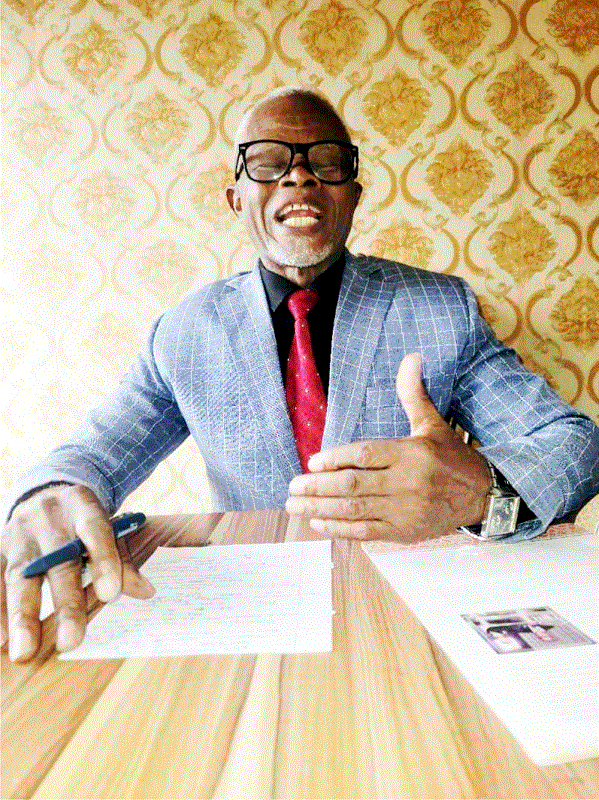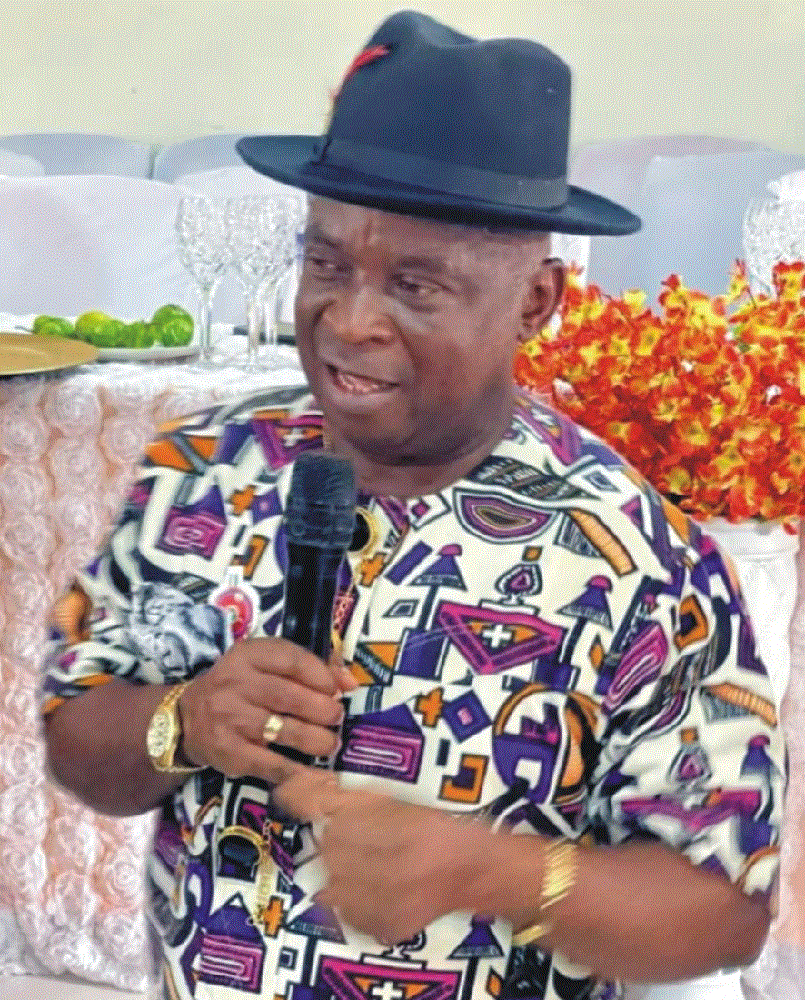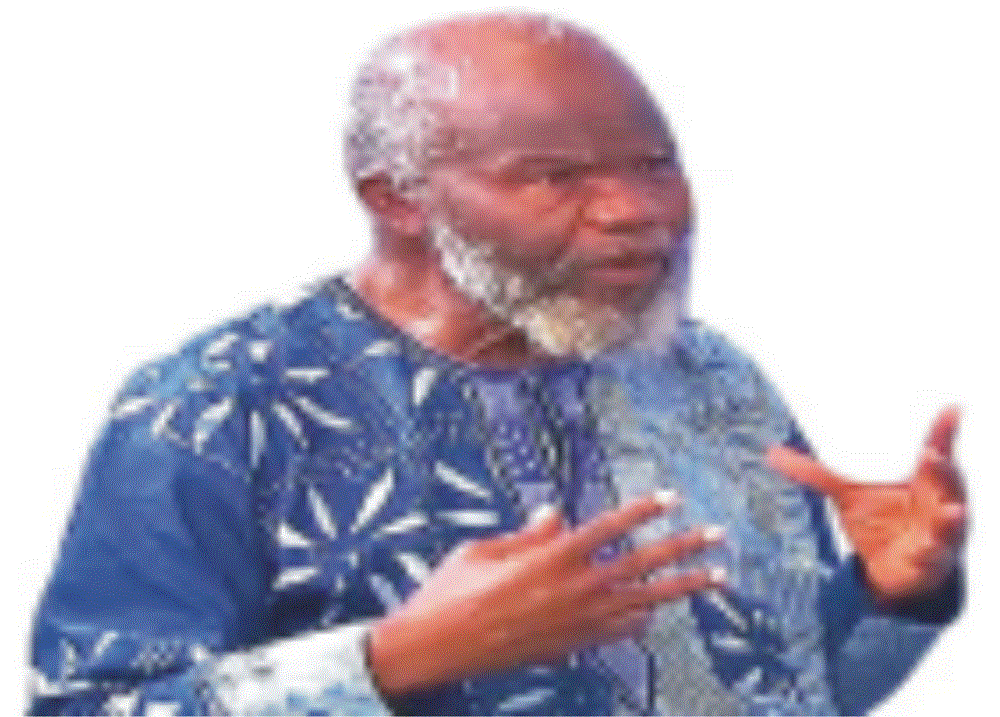Reps Dagogo Dismisses Passed ‘PIB’ On ‘Host Communities’ As Day-Robbery
Farah Dagogo is the lawmaker representing Degema/Bonny Federal Constituency of Rivers State at the House of Representatives. The Peoples Democratic Party member speaks with LEKE BAIYEWU on the Petroleum Industry Bill recently passed by the National Assembly and his bill seeking direct payment of 13 per cent derivation to host community.
What do you think was responsible for the long delay in the passage of the Petroleum Industry Bill by the National Assembly?
Let me first commend the members of the National Assembly for giving their voices to the PIB. You know that the PIB went through a voyage; the journey lasted for about 20 years. It was indeed a locomotive movement. The debate lasted this while because of interests. People wanted to satisfy their various interests. You are aware that the polity is the superstructure, while the economy is a substructure. So, the substructure is required to stabilise the superstructure. It was indeed a Nigerian game over the interest of the larger ethnic groups that do not have the oil resources and the minor ethnic groups that suffer the impact of oil and gas exploration and exploitation.
Do you think it is economically safe for Nigeria to privatise the petroleum industry?
Yes, I think so. The state is supposed to get its hands off business and be a regulator. The state enterprises have failed due to the absence of good managerial acumen. The state is indeed not a good business personality. That accounts for why corruption thrives in Nigeria and that also accounts for why we have more strong individuals than strong institutions in Nigeria. Most of these strong individuals have been visible in the management of the state’s public enterprises; and kleptocrats who have converted the commonwealth to private estates. Today, the refineries are almost not functional and they need state funds for turnaround maintenance. We cannot continue like this.
What are the benefits of the PIB to the country as a whole and the Niger Delta in particular?
The benefits of the PIB are enormous to both the Niger Delta in particular and Nigeria at large, some of which are as follows: it would create a conducive business environment for petroleum operations and engender ease in exploitation and exploration of petroleum resources in Nigeria for the benefit of Nigerians. It would also optimise domestic gas supplies especially for power generation and industrial development, and reduce – if not eliminate – gas flaring which is not environmentally friendly to the Niger Delta people. It would encourage investment in Nigeria’s petroleum industry by Nigerians and expose the oil industry to further investments outside the shores of Nigeria. Furthermore, the PIB would enhance government revenue and launch profit-driven oil entities. It would create efficiency of the regulatory entities and liberalise the downstream petroleum sector by promoting the development of ‘Nigerianisation’ or Nigerian content in the oil industry. All these and more are the benefits of the PIB. However, the host communities, found mostly in the Niger Delta, are not treated fairly.
You have expressed reservations over some clauses in the PIB passed by the Senate and the House. What are the issues?
Yes, I have; I am disenchanted with three things in the passed bill. In an interview I granted early this month, I noted inter alia that ‘to all intents and purposes, the content of the passed bill could be regarded as a sham and a bogus display of an infamous fluke orchestrated by the majority against the minority, whose land and people are afflicted amidst affluence.’ It demonstrates the unending reasons for the vociferous calls for restructuring, because of disorder and injustice that currently permeate the Nigerian state. Indeed, it was a ploy to further rub Peter and pay Paul. A critique of the passed bill shows some enervating factors that are highly disturbing. The first one is the Senate reduction of compensation payment to host communities from five per cent to three per cent, against the cries and appeals of southern senators. The second one is the redefinition of host community to mean any ‘community that oil pipeline passes through.’ By implication, host communities will now imply all states that do not even produce oil but have oil pipelines passing through them. Before now, host communities were communities that produce oil or have petroleum facilities/installations in their land. The passed bill also has a jargon known as ‘Frontier Exploration Basins’ for which the bill has provided 30 per cent of NNPC’s profits yearly. This is ambitious and very unsustainable. It is a means of exacerbating corruption and this appears to be a desideratum to fraud. Based on these, I am anguished. Specifically, the definition of ‘host community’ seems to have been changed in the bill. What is it now and does it reflect the current realities? It is very unfortunate. It is a day-break robbery that cannot stand. It is indeed a fluke and an uncharitable act designed to heat up the polity because the host communities are not ignorant of this fact, and I am sure they may react.
Talking about the term, ‘Frontier Exploration Basins’, do you agree that Nigeria now has more oil producing states?
This is a ploy to exacerbate corruption. How can the state invest 30 per cent? Like I mentioned in my earlier interview, it is a fluke. My constituents interpret this to mean that a certain percentage of the revenue, say hypothetically, 30 per cent from mines or gold from the North is set aside for gold and mine exploration from the ocean in the South. How do you justify this barefaced farce? This does not guarantee the fiscal direction and original intent of the bill, which seeks to provide legal, governance, regulatory and fiscal framework for Nigeria’s petroleum industry. I am not sure that was the spirit behind the PIB.
Is it true that other geopolitical zones especially in the North have been smuggled into the list of those to enjoy royalty in the sector?
From the definition of host communities in the PIB as we have it now, the answer to your question is yes.
Should the President, Maj. Gen. Muhammadu Buhari (retd) sign the PIB as passed by the National Assembly?
Based on the reactions coming from groups and sections of the country, I think he should tarry a bit till the grey areas are adjusted. Democracy is about the people and the government of the people is always supreme. In order not to create monsters out of the bill, he should not be in a hurry to sign.
Why do you want the 13 per cent derivation paid directly to the oil producing communities and what difference would it make to the beneficiaries?
I am one of the happiest legislators in the universe. I unequivocally say so because my heart is gladdened by the way the Committee on Rules and Business slated most of the bills that I sponsored for second reading. The bill on 13 per cent derivation seeks to alter Section 162 (2) of the 1999 Constitution of the Federal Republic of Nigeria to establish the Host Communities Development Commission charged with the responsibility of administering the 13 per cent derivation allocation to the mineral benefiting states under the Constitution. Arising, therefore, from this is that if any state is contributing a reasonable quantity of a mineral resource to the Federation Account, that state shall benefit from the funds (revenue). The government of each benefiting state is to establish the Host Communities Development Commission and ensure their existence under a law, which provides for the establishment, structure, composition, finance and functions of such commission within 12 months of the existence of this alteration. And failure to do so shall be deemed as an offence and such a state shall forfeit 30 per cent of its monthly benefit from the 13 per cent derivation fund till such a time that the commission is established. This, to us, would lead to frugality in revenue expenditure and reduce the high-handedness of most of the governors of mineral producing states. It would also reduce the corruption that characterises most of the state governments in these affected states. To all intents and purposes, it would lead to accelerated development.
You have also sponsored another bill to create a Niger Delta Natural Disaster Reserved Fund. Has the region not had enough from the Niger Delta Development Commission, 13 per cent derivation, the proposed three per cent profit share in the Petroleum Industry Bill, among others?
First and foremost, what is the intention of the bill? What does it aim to cure? That bill seeks to protect the Niger Delta against natural disasters like earth tremor, earthquake, well blowout/explosion, volcanic eruption, oil spills and consequent environmental devastation occasioned by the long period of oil exploration and exploitation. It provides for compulsory saving by the government, from oil revenue, in order to assuage the challenge whenever it occurs as well as provide security for the future generation of the oil producing communities against any of the above mentioned disasters. If that is asking for too much, I don’t have any regrets. And I am sure that Nigerian people know that this does not mean that the Niger Delta people are asking for more. It is an effort in the right direction.
Do you think the Youth Entrepreneurship Development Trust Fund you are proposing in another bill will work in Nigeria?
Thank you very much for the question. This bill seeks to create a Fund which shall be used to provide financial support for Nigerian youths with entrepreneurship skills, and provide a vehicle for assured socio-economic security as well as galvanise them to become self-reliant, employers of labour and captains of industry. The ‘Youth Fund’ will not only diminish unemployment and the social vices that characterise the Nigerian society today, but would also serve as a strong indicator that the country is very particular about its youths and has them in its plan. Back to your question on the workability of the proposal, I am sure it would work in Nigeria. I believe so because the Nigerian state needs to protect its own – the youth – who arguably constitutes more than half of the country’s population and are the future leaders. There is no gainsaying that the youth have been obliterated; we have a colony of them suffering from unemployment or underemployment and the state is aware and not oblivious of this fact. Year in and out, thousands of Nigerian youths are churned out of tertiary institutions but the state does not have enough carrying capacity to empty them into. This is indeed a big challenge because the idle mind would always be the devil’s workshop. This fact has led to the pendency of crimes and criminality in the society. Members of the National Assembly and Mr President – the father of the nation – are aware of this too and I am sure that the proposal would sail through. In the end, the state would be better for it.
How practicable is having a separate ‘Youth Fund’?
It is very practicable. Have you gone through the bill? The sources of revenue for the ‘Youth Fund’ would not be less than five per cent of the capital estimates in the Appropriation Act (national budget) of every year and profits accruing periodically from approved investments made out of the capital in the Youth Fund. We are also bringing in private entities to contribute to the Youth Fund. Consequently, mandatorily, they would contribute about one per cent of profit as declared and other revenue legitimately accruing to the Fund by means not provided for in the bill. Importantly, the Youth Fund shall be managed by the youths, thus, they would people the Board. There would be fiscal responsibility that engenders transparency and accountability, because relevant sections in the Bill have been proposed to address these issues.
Almost all members of the National Assembly are seeking establishment of schools and hospitals in their areas, why do you think a Federal Medical Centre is the best thing for your constituents in Bonny now?
Yes, that is one of the things they desire. You know that good health is wealth. In case you have forgotten, Bonny Island is host to the multibillion dollar Nigerian Liquefied Natural Gas (Limited) and it is located at the edge of the Atlantic Ocean, facing the Bight of Bonny. Bonny Island is surrounded on the west and south by long stretches of beaches. Let me state here that the beautiful beaches on the Island of Bonny attract tourists and fun-seeking people of diverse cultures and colours alike on sunny days, and festive periods especially Christmas and Easter. December 26 and 31 of every year, thousands of people visit the Finima beaches for beach carnivals. There is also the Finima Natural Park, which is an important tourist area located at the right-hand side of the roundabout. Currently, there is one General Hospital and a few health centres that are poorly equipped to provide for the basic health needs and handle the shocks that may arise from serious health related ailments or emergencies in the area. These facilities are looking like mere consulting clinics. Besides, Bonny is an island that grapples with many security challenges on the waterway. So, no medical centre in the area can withstand an outbreak of serious epidemic or hazards caused by industrial or social related activities. The absence of a good secondary health care facility is a concern to the residents, and this has led to vociferous calls and clamours for the provision of an improved health care system, hence, this bill which seeks to establish a Federal Medical Centre in Bonny, Rivers State.
You are also proposing the first STEAM higher institution via the proposed establishment of the Tombia Polytechnic. Are these not overambitious?
Again, I will answer yes to this question. This bill seeks to establish a polytechnic in Tombia. It would promote knowledge in courses of instruction, training and research in Science, Technology, Engineering, Arts and Mathematics, which is a core access of guiding students’ inquiry and critical thinking in the new age. A growing number of schools are now incorporating teaching methods that are more in line with STEAM education. STEAM gives students tools and methods to explore new and creative ways of problem-solving, displaying data, innovating, and linking multiple fields. The arts and STEM subjects naturally complement and inform each other, so implementing STEAM principles into education allows for more understanding, innovation and a cohesive education in the classroom. Tombia is a community in Degema Local Government Area of Rivers State. Already existing in the community is a Technical College which could be upgraded with the passage of this bill. It is again, an effort in the right direction.
Culled from PUNCH.



